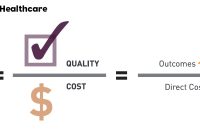Does Tax Exempt for Hospitals Mean a More Holistic Approach to Community Well-being?
In an era where healthcare expenditure looms large and continues to grow, discussions surrounding non-profit hospitals’ tax-exempt status have gained momentum, triggering conversations to the value communities are receiving in lieu of tax revenue generation. Hospitals were borne out of the social necessity of where to care for people who are sick when they could not be cared… Read More »









